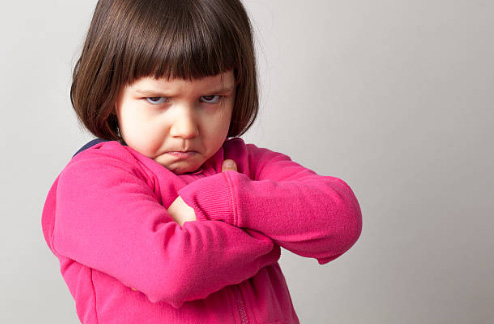
What Parents Need to Know
Anger is normal and healthy. Every healthy child gets angry at some point, and has the opportunity to learn how to express anger constructively versus destructively. Helping your child stop, calm and constructively express their anger is essential to them becoming emotionally healthy. Learning how to manage anger can happen in age-appropriate ways as early as preschool, but certainly is a common theme throughout grade school.
How to Help Your Child with Anger
Children feel deeply and oftentimes respond quickly, especially when it comes to anger. Billy was on the bus when another boy, Marcus, called him a wimp. Without thinking Billy hit Marcus and the school bus driver had to pull over. This is anger in action. Helping your child stop before they make poor choices with their anger is essential especially as they grow up, and their choices have bigger consequences (for example, they’re driving on the highway where road rage is common).
Some simple yet effective ways to start helping your child now with their anger is:
- Name the emotion – Help your son or daughter learn to spot their angry feelings while they’re small so they can handle them easier. For example, Amy at age six, has learned to say, “I’m feeling angry” or her older brother, Scout, at age eleven says, “I’m feeling furious” and everyone in his family knows he needs some space. Being able to name your feelings helps a child realize they are not their anger, but it’s simply something they’re experiencing. Anger vocabulary words include: Angry, Frustrated, Mad, Furious, Irritated, Annoyed, and Upset.
- Learn to stop – Imagine if Billy had stopped before he hit Marcus on the bus, he might not have had his parents called with an incident report and had to meet with the Principal the next day. Of course, the stopping part is hard because your child gets angry fast and wants to release it even faster. One mom, Anne, decided she would meet with each of her sons and come up with ways to help them slow down and stop when angry. Her oldest, Jackson at age nine, said he would take a deep breath and walk away from the situation. Her youngest, Leo at age five, said he would ask for help when angry. Of course, it will take practice but getting their commitment to do it is a mighty good first step.
- Calm – Children that can learn to cool down when angry make better choices. Some ways to help your child cool down include: Taking deep breaths, going for a walk, and journaling. Because it’s only when your child is calm that he or she can resolve conflicts, problem solve, or respond in a constructive way. For example, if Billy decided to ignore Marcus on the bus and focus on calming himself he might not have punched him. Calmness comes if we’re willing to do something differently, and hold off on reacting quickly when angry.
- Choose an outlet – Children need to release their pent up angry energy so they can feel better. Sometimes I even create a “Let-it-out List” with children so they can learn to identify what they can do to feel better such as: Hit a punching bag, shoot hoops in the backyard, talk with a friend, or go for a jog. Other children may find a creative outlet like drawing, or playing the drums. If you’ve had a problem with your son or daughter screaming, slamming doors and letting it out “sideways” then a discussion (when everyone is calm) might be: Let’s list the helpful ways to release anger, and unhelpful ways to release anger. Maybe even a consequences jar is established for anyone to put a dollar in if they release their anger in an unhelpful way – adults included.
- Begin Again – After your child’s gotten calmer, released his or her angry, and the situation has neutralized then you can metaphorically press the “reset” button and begin again. There is no reason to stay angry at your child because he or she simply didn’t know how to handle his or her anger, but when they know better, they’ll do better.
What I know for sure is that anger is one of the hardest emotions to handle, especially as a child and the more emotional coaching a child gets on what to do when angry, the better he or she is positioned for positive emotional health and ultimately, life success.
About the author:
Maureen Healy writes and speaks widely about children’s emotional health, parenting and education. She also works directly with parents and their children globally (Skype, and In-Person). Her book, Growing Happy Kids, won multiple awards in the parenting category in 2014 and her blog for Psychology Today has reached millions of parents seeking her assistance. To learn more: www.growinghappykids.com



























